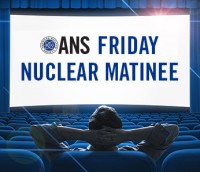The awards will fund research into artificial intelligence and machine learning approaches to developing fusion energy, as well as fundamental theory and simulation.
The Department of Energy announced on March 4 that it will provide $30 million for new research on fusion energy. The funding will provide $17 million for research focused specifically on artificial intelligence (AI) and machine learning (ML) approaches for the prediction of key plasma phenomena, management of facility operations, and accelerated discovery through data science, among other topics. An additional $13 million under a separate funding opportunity will be devoted to fundamental fusion theory research, including computer modeling and simulation, focused on factors affecting the behavior of hot plasmas confined by magnetic fields in fusion reactors.
The interior of the process building at the American Centrifuge Plant in Piketon, Ohio, where Centrus Energy plans to operate a HALEU demonstration cascade by June 2022. (Photo: Centrus Energy)
Advanced reactor cores are being designed for higher efficiencies and longer lifetimes, but to get there, they need high-assay low-enriched uranium (HALEU).
Enriched to between 5 and 19.75 percent fissile U-235, HALEU is packed with nuclear potential. It can be used as a feedstock for the demonstration of new fuel designs, from uranium alloys to ceramic pellets and liquid fuels. Those fuels can enable advanced reactor and microreactor demonstrations. Operating light-water reactors could potentially transition to HALEU uranium oxide fuels for extended operating cycles and improved plant economics.



